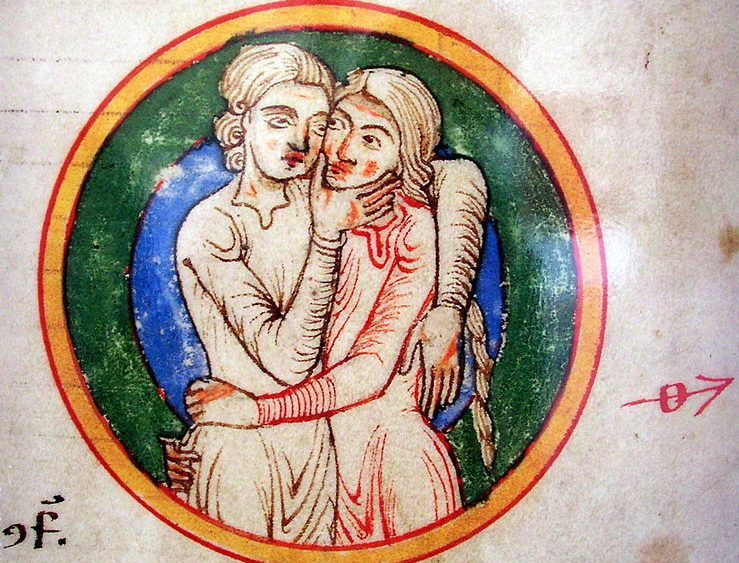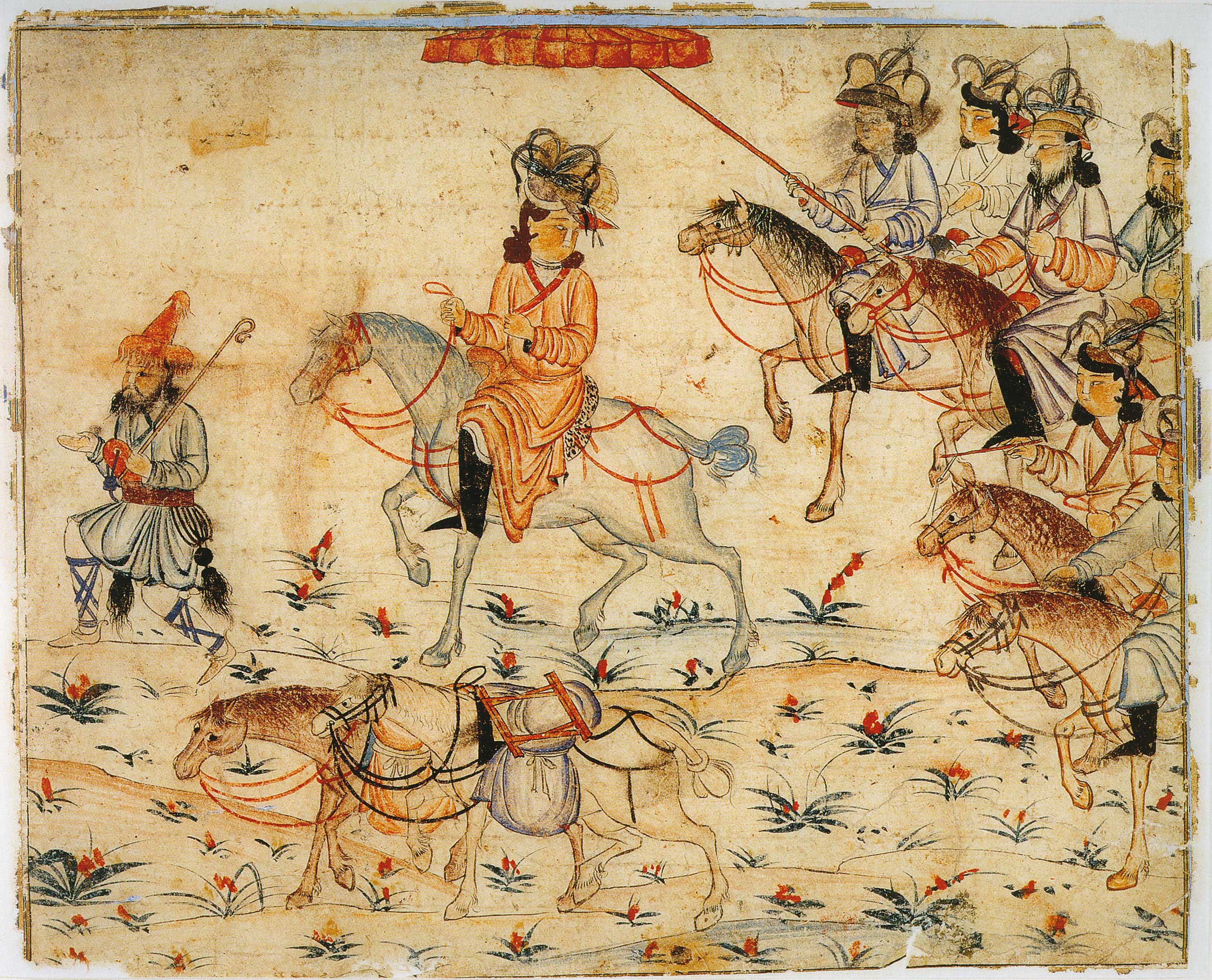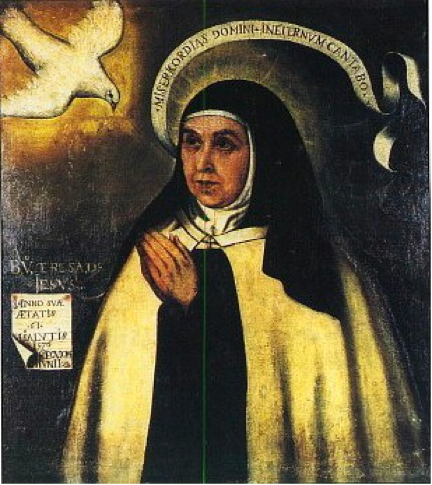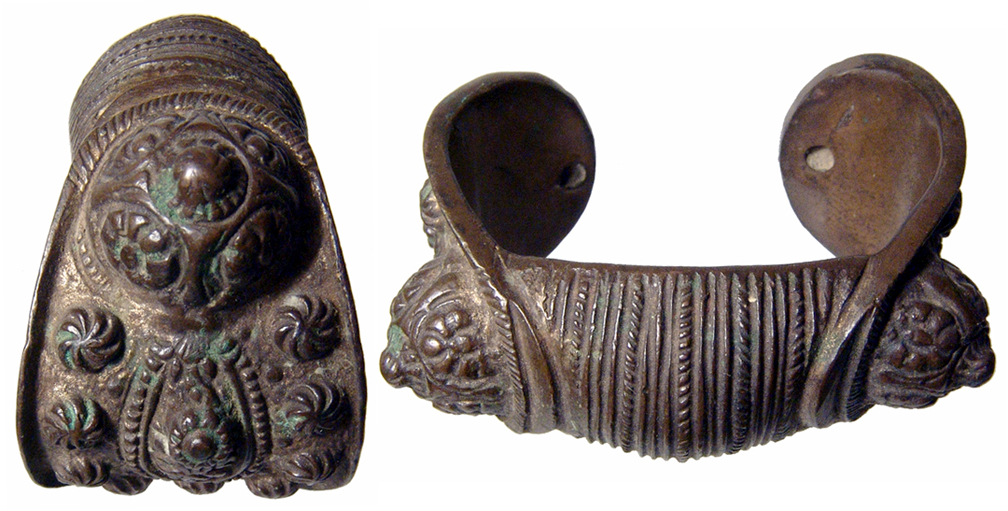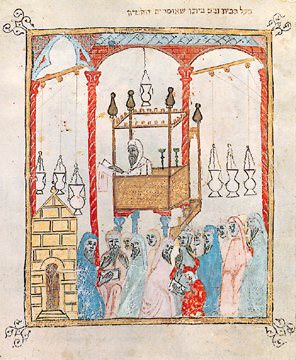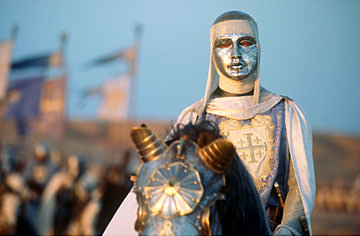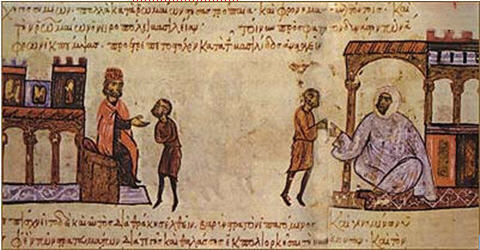What Medieval People Thought of Different Religions: Insights from Francesco Suriano
Have you ever wondered how people in the Middle Ages viewed those of different faiths?
Love Between Muslim and Jew in Medieval Spain: A Triangular Affair
We will soon find that, in affairs of love as in so many others, Muslims and Jews in Christian Spain were not in an exclusive dialogue.
Marrying the Mongol Khans: Byzantine Imperial Women and the Diplomacy of Religious Conversion in the 13th and 14th Centuries
Marrying the Mongol Khans: Byzantine Imperial Women and the Diplomacy of Religious Conversion in the 13th and 14th Centuries By AnnaLinden Weller Scandanavian Journal…
Cultural Exchange in the Languages and Literatures of Medieval Spain
Professor David Wacks’s fascinating discussion of the Iberian Peninsula and it’s incredible linguistic heritage.
‘Forget Your People and Your Father’s House’: Teresa de Cartagena and the Converso Identity
Religion is a very important factor to take into consideration in discussions about the identity of the conversos [converts] or New Christians, an emerging group in 15th-century Castile.
Intellectual Cartographic Spaces: Alfonso X, the Wise and the Foundation of the Studium Generale of Seville
This dissertation, “Intellectual Cartographic Spaces: Alfonso X, the Wise and the Foundations of the Studium Generale of Seville,” I reevaluate Spain’s medieval history, specifically focusing on the role of Alfonso X and his court in the development of institutions of higher education in thirteenth-century Andalusia.
Banditry and the Clash of Powers in 14th-Century Thrace: Momcilo and his Fragmented Memory
In the 14th century, a time of civil wars, religious and dynastic strifes, epidemics, natural disasters and miserable living conditions for the wider strata in the cities and the countryside that increased migratory movements, banditry, an indigenous phenomenon in the Balkan mountainous regions, intermingled with the intensified political struggles.
Race, Periodicity, and the (Neo-) Middle Ages
My goal is to intervene in ongoing discussions of race and periodicity, particularly vis-à-vis medieval culture, in order to investigate the informing role of the medieval and more particularly of medievalisms in the construction, representation, and perpetuation of modern racisms.
Discrimination Against the Jewish Population in Medieval Castile and León
I have tried to show the degree of discrimination suffered by the Jewish community in these two kingdoms in the Middle Ages through a deep analysis of the legal sources, lay as much as ecclesiastical, and also through documentary collections reflecting their practical application
Bright Beginnings: Jewish Christian Relations in the Holy Land, AD 400-700
This paper shows that Christian and Jewish relations in the Holy Land between the fourth and seventh centuries, according to the archaeological evidence, were characterized by peaceful co-existence.
Whose Golden Age? Some Thoughts on Jewish-Christian in Medieval Iberia
The medieval period in Spanish history has alternately been cast as a Golden Age of interfaith harmony and an example of the ultimate incompatibility of Muslim, Christian, and Jewish communities.
Cutting and Running from the (Medieval) Middle East: The Mises-hors-scène of Kingdom of Heaven’s Double DVDs
Cutting and Running from the (Medieval) Middle East: The Mises-hors-scène of Kingdom of Heaven’s Double DVDs Richard Burt 15 | 2007 : Le Moyen…
Church Reunification: Pope Urban II’s Papal Policy Towards the Christian East and Its Demise
What separates this brief work from that of previous historians is that it focuses on the formation and changes of papal policy in regards to the Eastern Orthodox Church during the First Crusade, exclusively.
The Cathedral of Bourges: A Witness to Judeo-Christian Dialogue in Medieval Berry
Positing any kind of Jewish-Christian “golden age” in Western Europe during the medieval centuries may seem somewhat foolish in light of what happened to Jews between 1240 and 1492: expulsions, forced conversions, social and political ostracism, deprivation of income and compa- rable economic oppression, accusation of and prosecution for so-called “crimes” against Christians, periodic rampages by Crusaders, and other attacks—both physical and mental— which functioned as insults to Judaism.
‘You say that the Messiah has come.’:The Ceuta Disputation (1179) and its place in the Christian anti-Jewish polemics of the high middle ages
Disputation could be the result of the Christian protagonist’s meeting with the North AfricanJew face-to-face and discovering that the Messianic promise was a subject of considerableinterest for his opponent. More importantly, regardless of whether the discussion in Ceuta hador had not taken place, the new Christian attitude towards anti-Jewish polemics expressed inthe Disputation’s text was most likely inspired by real-life discussions between Jews andChristians.
Ó
2005 Elsevier Ltd. All rights reserved.
Keywords:
Jewish and Christian relations; Mediterranean trade in the middle ages; Ceuta; Genoa;Scriptural exegesis, Almohads
The Messiah came in the twelfth century. This time he did not arrive in themanner anticipated by the prophets of the Bible. Rather, his arrival occurred in theworld of polemics, where he suddenly emerged from relative obscurity to becomethe central topic of the continuing religious debate between Jews and Christians
The Fatimid and Kalbite Governors in Sicily : 909-1044
This is the second part of my investigation on the Muslim governors (or rulers) in Sicily.
Walking in the Shadows of the Past: The Jewish Experience of Rome in the Twelfth Century
During this pivotal century and within the special microcosm of Rome, Jews and Christians experienced unusually robust cultural and social interactions, especially as the Jews increasingly aligned themselves with the protective power of the papacy.
Reconquista and convivencia: Post-conquest Valencia during the Reign of Jaime I, el Conquistador: Interaction between Christians and Muslims (1238-1276)
This study will focus on just one aspect of the transition from Muslim kingdom to medieval Christian state. In 1238, Ciudad de Valencia, the most important urban center in the Muslim kingdom of Valencia would fall to Jaime I, el conquistador, king of Christian Aragon and Catalonia, opening up a vast region to Christian influence.
The Exceptional Jewess and the Foolish Jew
In 1555, Pietro Fortini, a Sienese real estate investor, vicar, and paper industry entrepreneur began composing his two-part collection of novellas…
The Twelfth Century Renaissance and the Religion of Intent: Interiority and the Emergence of Selfhood Across Religious Boundaries
The Twelfth Century Renaissance and the Religion of Intent: Interiority and the Emergence of SelfhoodAcross Religious Boundaries Elliot, Serena M.A. Thesis (History), North Carolina State…
MUSLIM AND JEWISH “OTHERNESS” IN THE SPANISH NATION-BUILDING PROCESS
MUSLIM AND JEWISH “OTHERNESS” IN THE SPANISH NATION-BUILDING PROCESS THROUGHOUT THE RECONQUISTA (1212-1614) TÜRKÇELİK, EVRİM M.A. Thesis (Science), Middle East Technical University, August…
Leveraging Reputation: Guidaticums in Medieval Spain
Leveraging Reputation: Guidaticums in Medieval Spain Smith, Daniel J. (George Mason University) Troy University – Manuel H. Johnson Center for Political Economy, October…
The Spanish Shahrazad and her Entourage: The Powers of Storytelling Women in Libro de los engaños de las mujeres
The Spanish Shahrazad and her Entourage: The Powers of Storytelling Women in Libro de los engañosde las mujeres Hancock, Zennia Désirée Digital Repository at the University…
Marriage across frontiers: sexual mixing, power and identity in medieval Iberia
Marriage across frontiers: sexual mixing, power and identity in medieval Iberia Barton, Simon Journal of Medieval Iberian Studies, Vol. 3, No. 1, March (2011)…
Rereading the Crusades: An Introduction
Rereading the Crusades: An Introduction M. Powell, James The International History Review, Vol. 17, No. 4 (Nov., 1995) Abstract The very word ‘crusade’…

